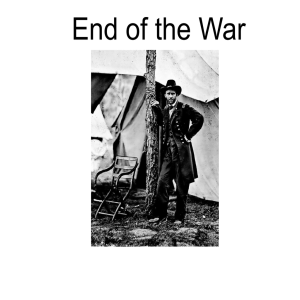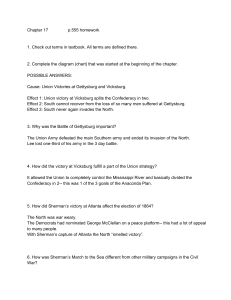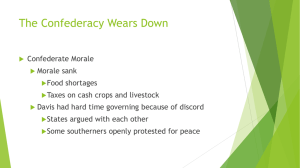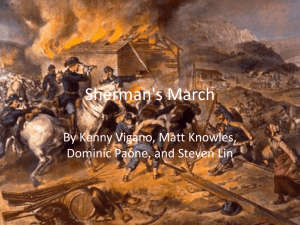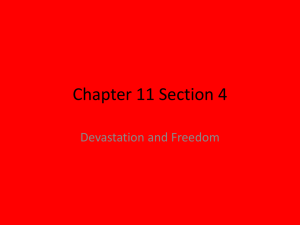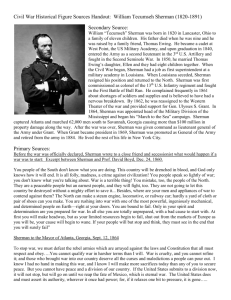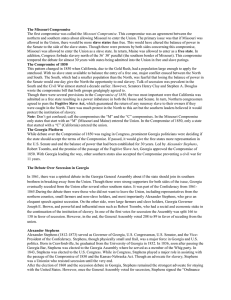CVWL1864-Larkin
advertisement
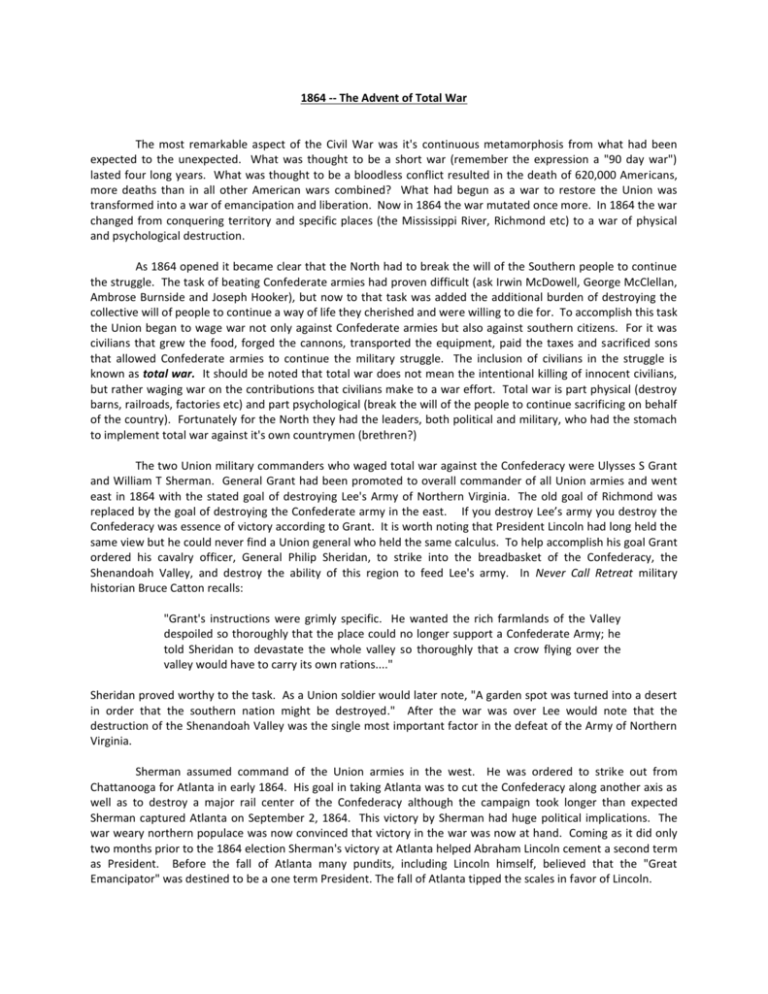
1864 -- The Advent of Total War The most remarkable aspect of the Civil War was it's continuous metamorphosis from what had been expected to the unexpected. What was thought to be a short war (remember the expression a "90 day war") lasted four long years. What was thought to be a bloodless conflict resulted in the death of 620,000 Americans, more deaths than in all other American wars combined? What had begun as a war to restore the Union was transformed into a war of emancipation and liberation. Now in 1864 the war mutated once more. In 1864 the war changed from conquering territory and specific places (the Mississippi River, Richmond etc) to a war of physical and psychological destruction. As 1864 opened it became clear that the North had to break the will of the Southern people to continue the struggle. The task of beating Confederate armies had proven difficult (ask Irwin McDowell, George McClellan, Ambrose Burnside and Joseph Hooker), but now to that task was added the additional burden of destroying the collective will of people to continue a way of life they cherished and were willing to die for. To accomplish this task the Union began to wage war not only against Confederate armies but also against southern citizens. For it was civilians that grew the food, forged the cannons, transported the equipment, paid the taxes and sacrificed sons that allowed Confederate armies to continue the military struggle. The inclusion of civilians in the struggle is known as total war. It should be noted that total war does not mean the intentional killing of innocent civilians, but rather waging war on the contributions that civilians make to a war effort. Total war is part physical (destroy barns, railroads, factories etc) and part psychological (break the will of the people to continue sacrificing on behalf of the country). Fortunately for the North they had the leaders, both political and military, who had the stomach to implement total war against it's own countrymen (brethren?) The two Union military commanders who waged total war against the Confederacy were Ulysses S Grant and William T Sherman. General Grant had been promoted to overall commander of all Union armies and went east in 1864 with the stated goal of destroying Lee's Army of Northern Virginia. The old goal of Richmond was replaced by the goal of destroying the Confederate army in the east. If you destroy Lee’s army you destroy the Confederacy was essence of victory according to Grant. It is worth noting that President Lincoln had long held the same view but he could never find a Union general who held the same calculus. To help accomplish his goal Grant ordered his cavalry officer, General Philip Sheridan, to strike into the breadbasket of the Confederacy, the Shenandoah Valley, and destroy the ability of this region to feed Lee's army. In Never Call Retreat military historian Bruce Catton recalls: "Grant's instructions were grimly specific. He wanted the rich farmlands of the Valley despoiled so thoroughly that the place could no longer support a Confederate Army; he told Sheridan to devastate the whole valley so thoroughly that a crow flying over the valley would have to carry its own rations...." Sheridan proved worthy to the task. As a Union soldier would later note, "A garden spot was turned into a desert in order that the southern nation might be destroyed." After the war was over Lee would note that the destruction of the Shenandoah Valley was the single most important factor in the defeat of the Army of Northern Virginia. Sherman assumed command of the Union armies in the west. He was ordered to strike out from Chattanooga for Atlanta in early 1864. His goal in taking Atlanta was to cut the Confederacy along another axis as well as to destroy a major rail center of the Confederacy although the campaign took longer than expected Sherman captured Atlanta on September 2, 1864. This victory by Sherman had huge political implications. The war weary northern populace was now convinced that victory in the war was now at hand. Coming as it did only two months prior to the 1864 election Sherman's victory at Atlanta helped Abraham Lincoln cement a second term as President. Before the fall of Atlanta many pundits, including Lincoln himself, believed that the "Great Emancipator" was destined to be a one term President. The fall of Atlanta tipped the scales in favor of Lincoln. Sherman then set off for the Georgia seacoast town of Savannah. This march across Georgia, now known forever in the history books as "Sherman's March to the Sea", was a blueprint for waging total war. Marching unopposed across the Georgia countryside his stated goal was "to make Georgia feel the hard hand of war." He kept to his promise. Destroying everything in its wake Sherman's army cut a swath 60 miles wide across Georgia from Atlanta to Savannah. Civilians, although unharmed, were force fed a lesson: the Confederacy cannot protect you. Sherman hoped that the average southern civilian would believe since that government could not protect its citizens the citizen was under no obligation to sacrifice for the government. (In modern war civilians are crucial to making the weapons and proving the food, medicine etc that make war possible). His destruction of the Georgia countryside accomplished the psychological goal of total war: the demoralization of the civilian population. Sherman once said, "War is all Hell" and he now proved it to those citizens in rebellion against the Union.
